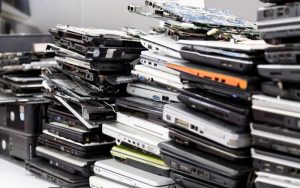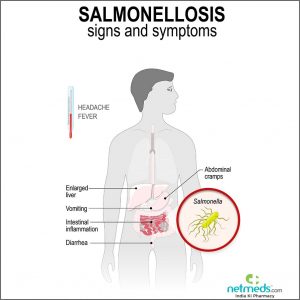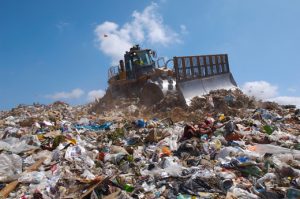Many people do not realize that their house or apartment is merely a conduit for the landfill.  They imagine that each thing they bring into their house to be valuable on its own, as if they intend to keep it forever. The possible exception would be household goods like cleaners and groceries. Those they know are fated to exit the back door and enter the waste stream. In fact, however, everything in their house has the same destiny. When they are moving in, as they struggle to lift ponderous furniture and boxes of books, as they gingerly carry in their lamps and laptops, they ignore the fact that each of those items are merely making a stop before they are deposited in the trash.
They imagine that each thing they bring into their house to be valuable on its own, as if they intend to keep it forever. The possible exception would be household goods like cleaners and groceries. Those they know are fated to exit the back door and enter the waste stream. In fact, however, everything in their house has the same destiny. When they are moving in, as they struggle to lift ponderous furniture and boxes of books, as they gingerly carry in their lamps and laptops, they ignore the fact that each of those items are merely making a stop before they are deposited in the trash.
The new computer is cleaned and  revered when it first arrives, but by the time it is replaced it is relegated to a backup, and finally, is thrown into a bin for e-waste. From there it is either buried or sent to a developing nation where it is broken down and its more valuable components and metals recovered.
revered when it first arrives, but by the time it is replaced it is relegated to a backup, and finally, is thrown into a bin for e-waste. From there it is either buried or sent to a developing nation where it is broken down and its more valuable components and metals recovered.
In that way the house is like our body, with its entrances and exits and with how little remains of what we put into it. Some heavy metals remain in the body for many years, while others,  like salmonella, are destined to have a short stay, but all of them treat the body like a way station.
like salmonella, are destined to have a short stay, but all of them treat the body like a way station.
This way of thinking about waste is important, for it serves as a reminder that everything we own, even the most valuable consumer item, is merely on short-term loan from the trash. The metals and plastics were plucked from the ground, processed into a momentarily distracting  form, and then pitched back into a hole where we bury it again. This, what Lars Eighner called, “the transience of material being” begs us to reconsider what enters the front door of the house, and to carefully evaluate what exits in the trash.
form, and then pitched back into a hole where we bury it again. This, what Lars Eighner called, “the transience of material being” begs us to reconsider what enters the front door of the house, and to carefully evaluate what exits in the trash.
